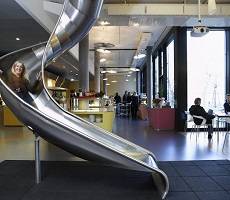May 28, 2014
Goodbye 9-5: flexible working practices help retain and attract staff
New ways of working are being fuelled by employees desire to take greater control of their lives. Over three-quarters (77%) of respondents in a survey by YouGov for Virgin Media Business said that remote working helps them address their work-life balance and almost four in five employees (78%) believe companies today need to offer it to attract and retain staff. As part of the research, psychologist Professor Cary Cooper reveals remote workers fall into four groups which range from ‘beginners’ to tech savvy ‘connectors.’ He stresses the need for employers to not only kit out their employees with the technology they need to work remotely, but also to educate them on flexible working best practice tips and guidelines because: “Ultimately this will help them ensure there is consistency across employees’ standard of work regardless of location, and will also ensure they remain as productive as possible.” More →





























May 29, 2014
What is expense management costing you and your business?
by Richard Gyles • Comment, Workplace